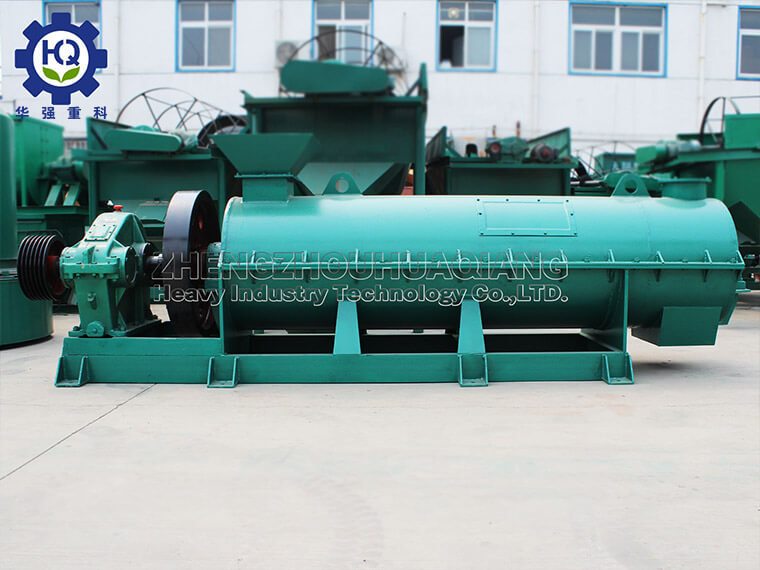Another 75% of the nutrients in chicken and pig feed are excreted with feces, containing nitrogen, phosphorus, potassium, organic matter, amino acids, proteins, and other components. Organic fertilizer production equipment converts manure into organic fertilizer through certain processes. How can organic fertilizer equipment achieve rapid fermentation and deodorization to produce finished products, and what are the advantages of this process compared to ordinary fermentation,
How to achieve rapid fermentation in organic fertilizer equipment:
1. The fermentation energy consumption of organic fertilizer equipment is low.
This fermentation process utilizes biological heat to evaporate a large amount of water, with low energy consumption, coal and electricity savings, and low labor intensity. It can effectively control fermentation humidity and reduce the loss of effective substances. Recommended reading: How to treat animal manure before the production of organic fertilizer equipment.
2. Organic fertilizer equipment has low environmental pollution during fermentation.
The organic fertilizer equipment adopts enclosed equipment to enhance the controllability of industrial production and reduce the exposure of parasitic sources of mosquitoes and flies. This can effectively control environmental pollution and produce high-quality organic fertilizers while ensuring the environment.
3. The fermentation time of organic fertilizer equipment is short.
Firstly, a factory fermentation process is adopted, inoculated with high-efficiency active bacterial agents, to quickly form dominant microorganisms, shorten fermentation time, and accelerate deodorization. Generally, deodorization and ripening can be completed in 2-3 days. However, conventional composting of farmhouse fertilizers takes 15-20 days in summer and 2-3 months in winter.
4. High fermentation conversion rate of organic fertilizer equipment
The WN series organic fertilizer high-temperature rapid fermentation machine is regenerated by high-temperature aerobic active bacteria fermentation, and the conversion rate can reach 95% of the amount of organic waste added.
5. High degree of automation, simple and safe operation
The high-temperature and rapid fermentation machines for organic fertilizers are all controlled by PLC programs, with automatic control throughout the entire process of feeding, fermentation, temperature control, drying, and discharge. The operators can take up their positions after simple training. The equipment is equipped with various safety protection measures, which can effectively prevent various mechanical, electrical, and personal safety accidents.
6. Government policy support, in compliance with environmental requirements
After dust removal, deodorization, and sewage treatment, the organic fertilizer high-temperature rapid fermentation machine meets environmental standards for waste gas and wastewater discharge, without secondary pollution. The biochemical treatment machine thoroughly harmless treats the waste during the production process.